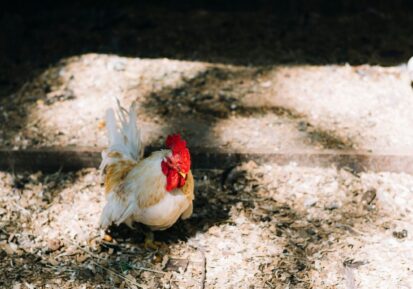Blog

Feeding Strategies: Integrating Supplements into Poultry Diets

In poultry farming, feeding practices are crucial since they affect the health, output, and general welfare of the birds. Adding poultry feed supplements to the diet is an important component of these tactics. The nutritional value of the diet can be greatly increased by these supplements, which can result in increased growth rates, better egg production, and stronger immunity. To guarantee the best outcomes for your flock, we will examine in this blog how to incorporate poultry feed supplements into diets in an efficient manner.
Understanding the Importance of Poultry Feed Supplements
Poultry feed supplements are carefully designed additives that offer vital vitamins, minerals, and other nutrients that are insufficiently present in a regular diet. These dietary supplements are essential for:
Increasing Growth Rates: Amino acid and protein supplements help build muscle and promote general growth.
Enhancing Egg Production: For higher egg quality and quantity, vitamins like D3 and calcium supplementation are crucial.
Boosting Immunity: Supplements that increase immunity, such as probiotics and prebiotics, aid in preserving strong health and illness resistance.
Enhancing Digestion: Supplemental enzymes help ensure that nutrients from the feed are absorbed and digested as effectively as possible.
Effective Strategies for Integrating Poultry Feed Supplements
1. Assessing dietary requirements
Before incorporating supplements, evaluate your fowl’s specific nutritional requirements. Factors such as age, breed, and production goals (e.g., meat or egg production) will determine the type and quantity of nutrients needed.
2. Selecting the Appropriate Supplements
Choose supplements that fill in the nutritional deficits that have been found. Frequently utilized dietary supplements consist of:
Minerals and vitamins: Necessary for general well-being and efficiency. Essential for development and growth are amino acids.
- Prebiotics and probiotics: Boost immunity and intestinal health.
- Enzymes: Improve digestion and nutrition absorption.
3.Gradual Introduction
To give the birds time to adjust, gradually add new additives to their food. Stress and digestive problems may result from abrupt changes in diet mix. Over a week or two, start with smaller dosages and progressively rise to the suggested amount.
4.Equally Mixing Supplements with Feed
To guarantee that every bird has a steady supply of nutrients, make sure supplements and feed are combined thoroughly. This can be accomplished by:
- Premixing: Mix a tiny amount of feed with the supplements first, and then combine this with the main batch of feed.
- Top-Dressing: Although this technique could result in an uneven distribution, sprinkle additives on top of the feed.
5. Observing and Modifying
Check your poultry’s health and performance regularly after supplementation. Keep an eye out for increases in vigor overall, growth rates, and egg output. If necessary, modify the supplement’s dosages on the observed outcomes and any recommendations from a veterinary nutritionist.
6. Guaranteeing Quality and Freshness
To keep supplements effective, keep them somewhere dry and cool. Utilize them within the suggested time frame to prevent their nutritious value from declining. Make careful you only purchase supplements from reliable vendors to guarantee premium quality and security.
7. Seeking Advice from Specialists
Consulting a veterinary nutritionist or poultry feed specialist regularly can offer significant insights into the most effective utilization of supplements. Based on the unique requirements of your flock and the most recent developments in chicken nutrition, they may provide customized guidance.
Benefits of Integrating Poultry Feed Supplements
Increased Output- Productivity gains can be substantial when supplements are used properly. Broilers can acquire more muscle and gain weight more effectively than layers, which may lay a greater number of eggs with stronger shells.
Enhanced Immunity and Health- Supplements aid in preserving the flock’s general health by lowering illness rates and enhancing immunity. This increases the birds’ longevity and reduces veterinary expenses.
Increased Feed Efficiency- Enzymes, as a supplement, aid in digestibility, ensuring birds derive maximum nutrition from their feed. This lowers the total cost of feed by improving feed efficiency.
Sustainable Agriculture- Due to their ability to maximize feed utilization and minimize waste, supplements can promote environmentally friendly agricultural practices This helps to make chicken raising more ecologically friendly.
Conclusion
Including vitamins in your chicken feed is a smart way to improve the health, output, and general welfare of your flock. Poultry farmers can get exceptional outcomes by comprehending the particular dietary requirements, selecting appropriate poultry feed supplements, and putting into practice efficient feeding techniques. Maintaining the efficacy and benefits of your supplement program will require routine monitoring and professional consultations. Accept these tactics to increase the sustainability and success of your chicken raising. To learn more about our animal nutrition and supplements you can visit our website.

